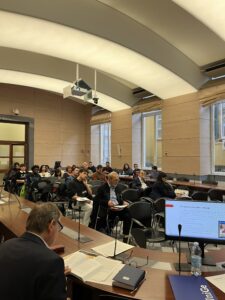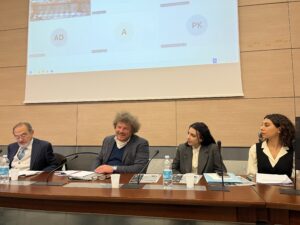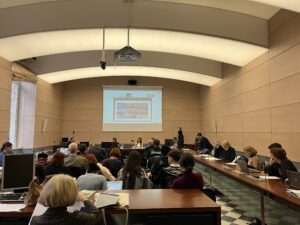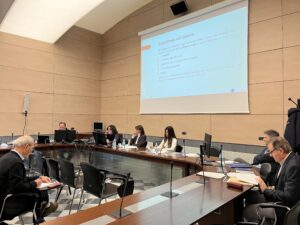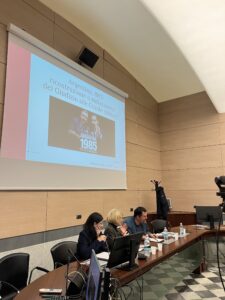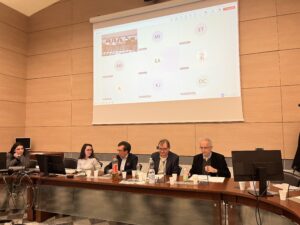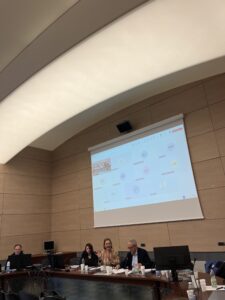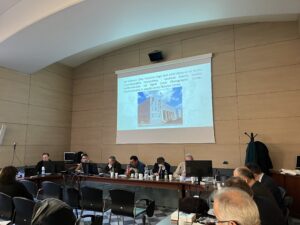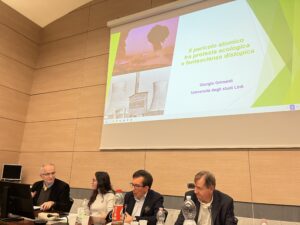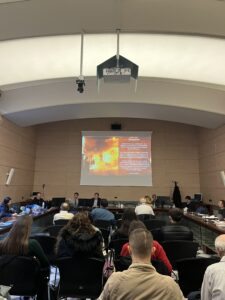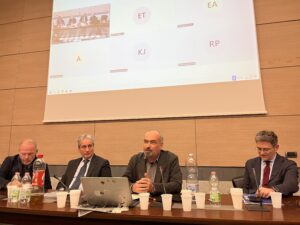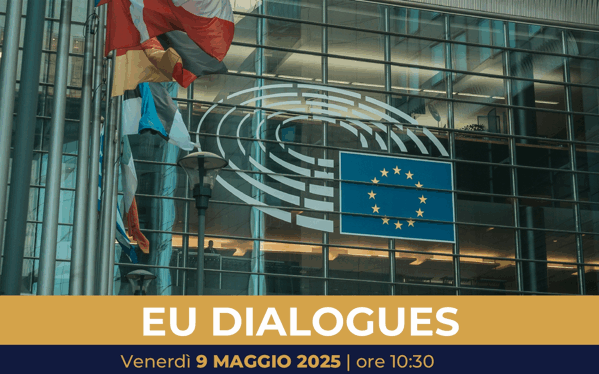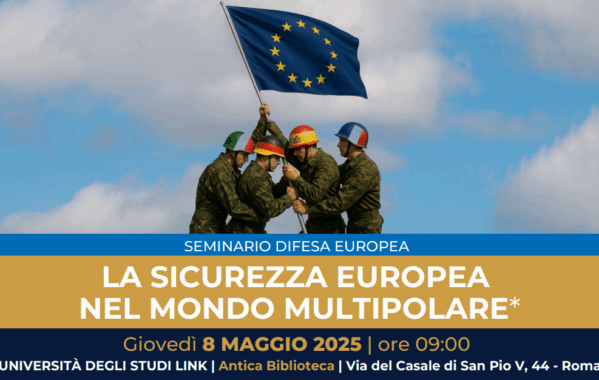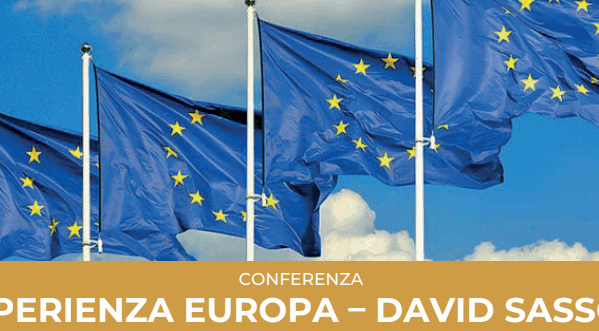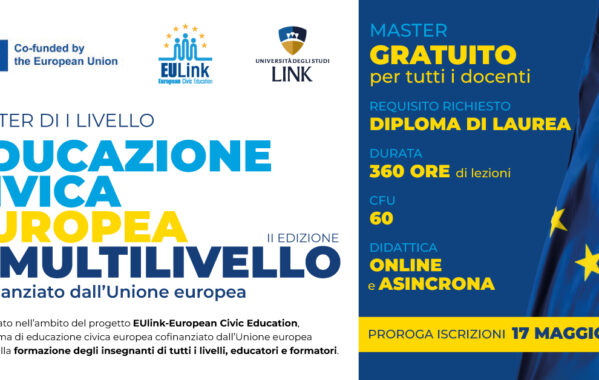Cinema and International Politics in the Short Century – November 28/29, 2024
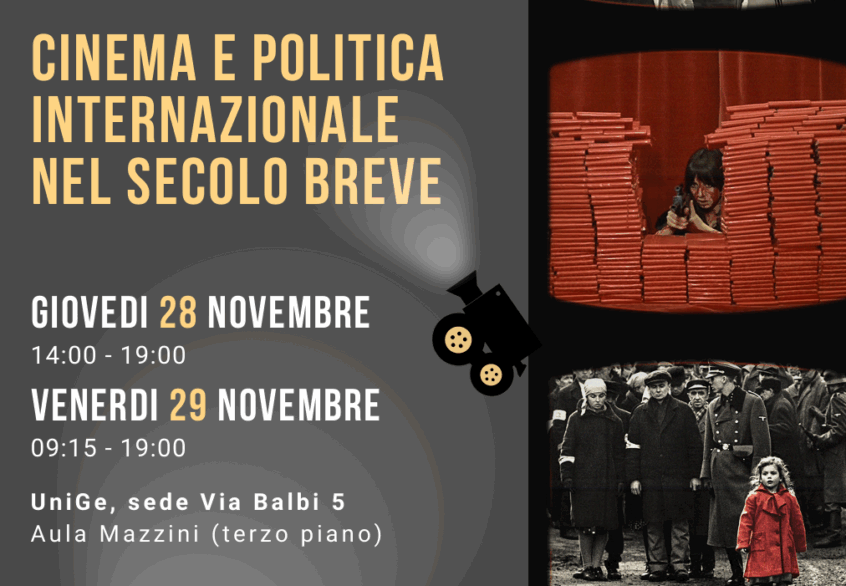
The conference Cinema and International Politics in the Short Century, held on 28 and 29 November 2024 at the Aula Mazzini of the University of Genoa, aimed to investigate the ways in which the history of the twentieth century has been represented and interpreted through the language of cinema, understood as a privileged instrument of historical narration for its ability to combine accessibility, popular diffusion and evocative power.
The initiative, organized by the Department of Political and International Sciences (DISPI) of the University of Genoa, in collaboration with the University “La Sapienza” of Rome and the Link University of Rome, is part of the activities of the Jean Monnet Chair Ciak-EU! Europe through films: history, identity and politics. The conference brought together over thirty speakers, including scholars, journalists and film critics, from numerous Italian and international universities — including the Universities of Padua, Modena and Reggio Emilia, Turin and Hamburg — who offered contributions of a high scientific profile within a path of reflection structured around specific macro-themes, developed over the course of the two days of work.
The first day of the conference was structured around the theme of colonialism, civil wars and mass mobilization during the twentieth century. After the institutional greetings, the debate opened with a critical analysis of the cinematic representations of colonialism and imperialism during the First World War, examining works such as Ferdinand the Bull (1938), The Battle of Algiers (1966) and Lion of the Desert (1980). This examination highlighted the role of cinema as a vehicle for reflection on identity, violence, political denunciation and pacifist allegories.
Subsequently, attention was focused on the cinematic manifestations that accompanied the dynamics of social rebellion, from the expressionist production of the Weimar Republic – with emblematic titles such as The Cabinet of Dr. Caligari (1920), Nosferatu (1922) and Metropolis (1927) – to the Bolshevik propaganda cinema and the European avant-gardes of the Nova Vlna and the Nouvelle Vague, represented by films such as Les Margheritine (1966) and La Chinoise (1967). The day ended with an in-depth analysis of the dimension of political and historical memory, through the analysis of Argentina, 1985, which addresses transitional justice and human rights, and the reflection on (des)memory in the poetics of Pedro Almodóvar.
The second day of the conference continued the discussion on historical memory through an analysis of the role of cinema in the representation of the Second World War, with particular reference to works such as Inglourious Basterds (Tarantino, 2009) and The Zone of Interest (Glazer, 2024). The first panel examined war propaganda cinema, comparing the film-manifesto Why We Fight (Capra, 1942) with the productions of the Istituto LUCE, also highlighting a significant absence in the cinematic representation of the relationship between the Allies and the Italian Resistance, in contrast with the vast treatment of the Shoah and its impact on collective memory.
The transition to the Cold War introduced the second panel, which focused on the spy movie genre and the figure of the secret agent as a cultural icon of the second half of the century. The debate expanded with reflections on US narratives of historical events, oscillating between patriotic exaltation and self-criticism, as well as with the analysis of cinematic representations of the Vietnam War, the Cuban missile crisis and issues related to the atomic danger, between trauma and ecological activism.
The last panel addressed the topic of international organizations in cinema, paying particular attention to ecology and the concept of Anthropocene. The function of monologue and political discourse as narrative tools with a strong social and cultural impact was also explored, especially in relation to the protection of human rights in great historical tragedies. The day ended with an analysis of the ways in which cinema has addressed the process of European unification and the identity issues connected to the motto “united in diversity”, exemplified by works such as Smugglers’ Banquet (Storck, 1951), Nothing to Declare? (Boon, 2010) and Western (Poirier, 1997).
The conference concluded with a remote lecture by Professor Anne Bruch of the University of Hamburg, which offered an in-depth look at the role of informational cinema in the construction of European identity in the 1950s and 1960s. The lecture presented the results of the research project “Werben für Europa. Die mediale Konstruktion europäischer Identität durch Europafilme im Rahmen europäischer Öffentlichkeitsarbeit”, directed by Professor Gabriele Clemens at the University of Hamburg. The project analyzed a corpus of about 350 films, collected in the Advertising Europe Film Collection, preserved since 2019 at the Historical Archives of the European Union in Florence. The focus of the study is on information films commissioned by supranational institutions such as the Western European Union, the Council of Europe, the European Coal and Steel Community, Euratom and the EEC, as well as by national press and information departments in France, West Germany and Italy. These materials, so far neglected by historiography and film studies, are today a crucial source for investigating the communication strategies employed in the construction of the European identity and in the diffusion of the European project.
Published articles: Diletta Culla, Cinaema and international politics in the short century. Rereading the twentieth century through the gaze of the seventh art: Genoa 28-29 November 2024, Euractiv Italia (https://euractiv.it/section/
Second day: November 29, 2024

